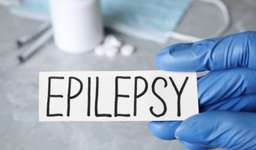
Seizures & Epilepsy
Cost: £6.00
Welcome to our Seizures & Epilepsy online Training. Upon completion, you will receive a certificate of completion. The course duration is approximately 1 hour and will earn you 1 CPD point. You have 6 months from the date of purchase to finish this training.This module covers various topics related to Seizures & Epilepsy online training module:
1. Introduction to Seizures & Epilepsy:
• Definition and classification of seizures and epilepsy
• Prevalence and impact of epilepsy globally
• Understanding the causes and risk factors associated with epilepsy
2. Types of Seizures:
• Overview of different seizure types (generalized, focal, absence, etc.)
• Recognizing the signs and symptoms of each seizure type
• Understanding the potential triggers for seizures
3. Diagnosis and Evaluation:
• Diagnostic criteria for epilepsy
• Common diagnostic tests and procedures used to confirm epilepsy
• Importance of accurate diagnosis and differential diagnosis
4. Treatment Options:
• Overview of available treatment options for epilepsy (medications, surgery, lifestyle modifications, etc.)
• Understanding the goals of treatment and the importance of individualized care
• Potential side effects and risks associated with different treatment modalities
5. Management and Care:
• First aid measures for managing seizures and ensuring patient safety
• Importance of adherence to medication regimens and regular follow-up care
6. Emergency Response:
• Recognizing and responding to status epilepticus (prolonged seizures)
• Understanding when to seek emergency medical assistance
• Overview of rescue medications and their administration
7. Seizure Management Plans:
• Importance of developing individualized seizure management plans
• Regular review and updating of seizure management plans
8. Seizure Documentation and Reporting:
• Importance of accurate seizure documentation for effective patient care
• Understanding the legal and ethical considerations surrounding seizure reporting
• Proper documentation techniques and tools
9. Epilepsy Education and Advocacy:
• Promoting public awareness and dispelling common myths about epilepsy
• Resources for further education and support for patients and their families
The learning outcomes are:
1. Understanding of seizures and epilepsy:
• Define seizures and epilepsy and differentiate between the two.
• Identify the various types of seizures and their associated signs and symptoms.
• Explain the prevalence and impact of epilepsy on individuals and society.
2. Knowledge of diagnosis and evaluation:
• Understand the diagnostic criteria for epilepsy.
• Describe common diagnostic tests and procedures used to confirm epilepsy.
• Recognize the importance of accurate diagnosis and differential diagnosis.
3. Familiarity with treatment options:
• Identify available treatment options for epilepsy, including medications, surgery, and lifestyle modifications.
• Understand the goals of epilepsy treatment and the importance of individualized care.
• Recognize the potential side effects and risks associated with different treatment modalities.
4. Competence in seizure management and care:
• Demonstrate knowledge of first aid measures for managing seizures and ensuring patient safety.
• Implement strategies for creating a seizure-safe environment.
• Understand the importance of medication adherence and regular follow-up care.
5. Proficiency in emergency response:
• Recognize and respond appropriately to status epilepticus (prolonged seizures).
• Know when to seek emergency medical assistance for patients experiencing seizures.
• Understand the administration of rescue medications for seizure emergencies.
6. Understanding of psychosocial support:
• Recognize the impact of epilepsy on an individual's quality of life.
• Demonstrate knowledge of strategies for addressing the emotional and psychological needs of patients with epilepsy.
• Promote self-management and coping skills for individuals living with epilepsy.
7. Ability to develop seizure management plans:
• Understand the importance of individualized seizure management plans.
• Collaborate with patients, families, and healthcare professionals to create effective plans.
• Regularly review and update seizure management plans based on patient needs and changes in their condition.
8. Competence in seizure documentation and reporting:
• Understand the importance of accurate seizure documentation for effective patient care.
• Recognize the legal and ethical considerations surrounding seizure reporting.
• Demonstrate proper documentation techniques and tools.
9. Knowledge of epilepsy education and advocacy:
• Promote public awareness and dispel common myths about epilepsy.
• Understand the rights and needs of individuals with epilepsy.
• Identify resources for further education and support for patients and their families.
We hope you find this module informative and beneficial for your professional development in Seizures & Epilepsy online training module.
If you need more information about this course, please contact Train Healthcare directly at 0208 3266 704 or email contact@trainhealthcare.com.
Please note that refunds are not available for online training purchases.
Nursing and Midwife Council's (CPD Points).
Requirements:
It is necessary to complete 35 hours (35 Nursing CPD Points) of relevant CPD within the three-year period since your last registration renewal or since joining the register.
Of these 35 hours (35 Nursing CPD Points), a minimum of 20 hours (20 Nursing CPD Points), should be dedicated to participatory learning, which involves engaging in activities that facilitate interaction with other professionals.

